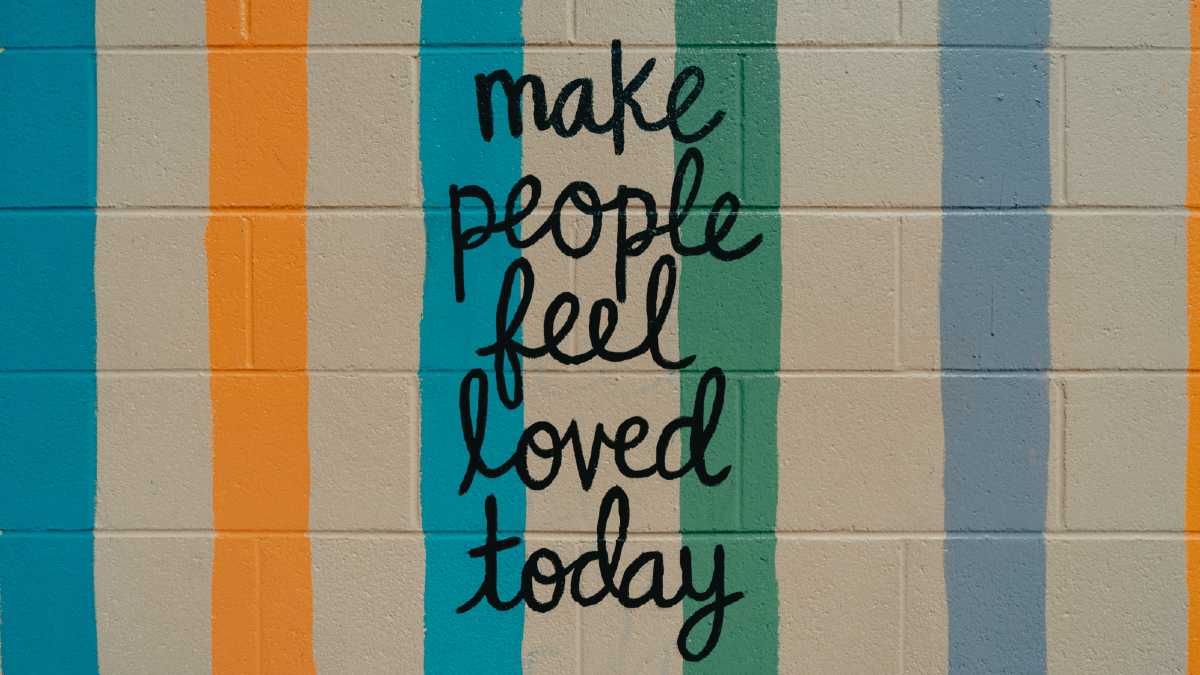
A Therapist Tells Us Why We Need To Unlearn These 3 Myths About Love
Sometimes, disillusionment is the best thing that can happen to us when it comes to love.

By Jourdan Travers, LCSW | April 21, 2023
Many people come to therapy distressed when the rose-tinted glasses through which they once viewed love begin to crack. They say things like:
- "I always wanted the fairytale but the dating scene is the exact opposite. How come no one prepared me for this?"
- "Love has always been this pure and ecstatic thing for me. But, lately, it's been getting more and more messy. Was I wrong this whole time?"
- "What if I never find my soulmate? I don't ever want to settle for anyone but my twin flame."
We are inundated with all kinds of narratives and representations of love from a young age. No wonder our idea of what love should look and feel like can be muddled and manufactured. The truth is that all of us get to define what love means for ourselves.
We all deserve to have an authentic experience of love. Misrepresentations of it can lead us away from what we really want. Here are three myths about love you might need to unlearn, according to mental health research, to take a real shot at a long-lasting, satisfying relationship.
#1. Opposite poles attract
The typical rom-com scenario of two diametrically opposed individuals falling in love with each other and living 'happily ever after' is statistically inaccurate, according to research published in Personality and Individual Differences.
This does not mean that different people cannot fall in love with each other, it simply means that the differences aren't the reason for their bond. The simple, boring truth is that similarity and compatibility in values and priorities are what ensure a long, satisfying relationship.
Then what is it that makes us choose partners so different from us? There are two possible reasons, according to researchers Zsófia Csajbók and Peter Jonason:
- Yin-yang thinking: This is a thought process that mistakes the volatility of an 'opposites' relationship for love. While the differences could add to the drama and spice in your relationship, they might never give you the peace, comfort, or security that love should ensure.
- Childhood experiences: People who are attracted to the 'opposites attract' school might be emulating relationships they saw when growing up – such as having extremely dissimilar parents.
#2. The teen fantasy
You might cringe at popular teenage media like Twilight and Wattpad fanfiction now, but most of us have had our fair share of problematic teen fantasies growing up. But what if these obsolete fantasies were still insidiously influencing our adult relationships?
A study published in the Journal of Couple and Relationship Therapy that examined teenagers' 'relationship cognitions' explained that adolescents, mostly boys, can sometimes have highly risky ways of viewing and thinking about relationships. These include believing in 'blind love,' i.e., thinking that only feelings of love are enough to sustain a relationship, sliding in relationships instead of pacing themselves, and even being tolerant towards controlling behaviors like manipulation and abuse.
It's important to look inward and understand whether the way you view your relationships is problematic and possibly being informed by your teenage self.
We cannot blame our younger selves for not knowing better. However, if we do not address the root of the issue we might end up following the template well into adulthood.
#3. Till death do us part
This one might be especially painful for the ones still rooting for Taylor Swift and Joe Alwyn. Relationships, even the most beautiful and loving ones, may not last forever. And even when they do, the dynamic of the relationship can change dramatically.
For instance, people may not want to live together or stay monogamous anymore in their marriage or long-term relationship. While changes like these might be uncomfortable to make or even consider, they can ultimately feel most liberating and authentic.
NYU professor and researcher Zhana Vrangalova explains that the urge to 'open up' your relationship to a non-monogamous arrangement does not necessarily signal the end of love. In fact, it could mean that both partners love and trust each other enough to experiment with novelty.
Love should be what you want it to be. However, it is undeniably complex and dynamic. Tying yourself down to a one-dimensional image in your head that has no room for you or your partner's desires may burn your relationship out.
Conclusion
Your perception of love needs to grow and change with you. Getting fixated on a specific idea of love, especially if it's not yours, can lead to a world of hurt. It is in your self-interest to communicate your deepest desires and be completely transparent in your relationships to ensure a bond that stands the test of time.
